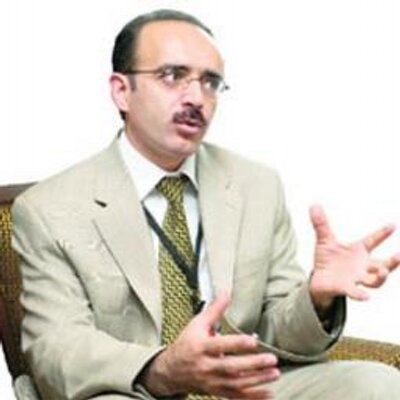Dr. Nasrin Rouzati, holds a Bachelor degree in Broadcast Journalism, Masters in Educational Technology, and a Ph.D. in Islamic Studies from University of Durham, UK. Along with having a full time career as the Director of Technology for New York school districts, Dr. Rouzati joined the Department of Religious Studies, Manhattan College, New York in 2007. While a part time faculty member, in 2018 she was promoted to Associate Professor position. Dr. Rouzati has taught World Religion courses, and currently teaches two upper class courses on Islam. Some of her areas of interests include: Qur’anic Studies, Islamic Theology, Islamic Mysticism, Theodicy, and Comparative Theology. Dr. Rouzati’s book, Trial and Tribulations in the Qur’an: A Mystical Theodicy was published in 2015. She is also the author of other scholarly articles in the area of Islamic studies. Webinar Title: Evil and Human Suffering in Islamic Thought: Towards a Mystical Theodicy Abstract: This paper sheds light on the treatment of the ‘problem of evil’ and human suffering from an Islamic perspective. I begin by providing an overview of the term ‘evil’ in the Qur’an to highlight its multidimensional meaning and to demonstrate the overall portrait of this notion as it is presented in the Islamic revelation through the narrative of the prophet Job. Having established a Qur’anic framework, I will then provide a brief historical overview of the formation of philosophical and theological debates surrounding “good” and “bad/evil” and the origination of Muslim theodicean thought. This will lead us to Ghazalian theodicy and the famous dictum of the “best of all possible worlds” by one of the most influential scholars of Islamic thought, Abu Hamid Ghazalı. The final section of this paper will explore the Sufi/ mystical tradition of Islam through the teachings of one of the most distinguished mystics of Islam, Jalal al-Dın Rumi. The conclusion of the paper will attempt to bring about a new understanding of how the so-called “problem of evil” is not presented in Islam as a problem but rather as an instrument in the actualization of God’s plan, which is intertwined with human experiences in this world—an experience that is necessary for man’s spiritual development. Keywords: problem of evil; theodicy; Qur’an; Job; good; evil; al Ghazalı; mysticism; Islam.
Category: Past Webinars
Dr. Tubanur Yeşilhark Özkan: “The problem of ‘evil’: What is created when sharr happens?”
The title of this paper suggests that sharr is not something that is created and therefore sharr does not exist. Sharr does not exist but it can ‘happen.’ So, what is it then, that is created, when sharr happens? This chapter is not about theodicy, in other words, it will not defend God by trying to find answers to questions such as how can sharr be reconciled with God’s omnipotence and compassion? Why did God create Satan knowing that he will misguide human beings? etc. It rather is an ontological exercise, trying to comprehend the non-existence of sharr despite its apparent occurrence.
Dr. Mahshid Turner: The concept of huzn (sadness) and its relevance today

The aim of this talk is to critically examine one particular aspect of sadness, namely ḥuzn (translated as sorrow, grief, sadness), from a Muslim perspective generally and from the perspective of Said Nursi in particular. It endeavours to determine whether ḥuzn has a positive role to play and, if so, whether it should be treated as something that is ‘normal’. It tries to understand why ḥuzn is acknowledged as something which is both given to, and taken from, individuals by God, but yet is apparently viewed by the Quran as a negative feeling that is to be obviated whenever possible. It also questions why, if ḥuzn is a negative attribute, believers – prophets in particular – were not exempt from it, particularly given its link to unbelief.
Dr. Necati Aydın: Phenomenology and Self in Said Nursi

Topic: Phenomenology and Self in Said Nursi: Reflective reading of the Anā Treatise (First Part of 30th Word) within the phenomenological method Presenter: Dr.Necati Aydin Date and Time: Tuesday, May 26, 2020, 04:00 PM Istanbul Abstract: The objective is to engage in scholarly discussion in comparing and contrasting Nursi’s concept and use of ana (self) with the phenomenological concepts and method. The debate is expected to shed light on his epistemic, ontic, and phenomenological approaches based on his understanding of human self and consciousness. Particularly, it might help to better understand his mana-i harfi approach in reading the universe with its physical, social, and personal events like a meaningful book. The presentation will consist of three parts: First, a definition and a brief history of phenomenology will be provided. Second, key phenomenological concepts will be presented. Third, the presenter will share his own reflective reading of Ana Treatise within the framework provided in part 1 and 2.

